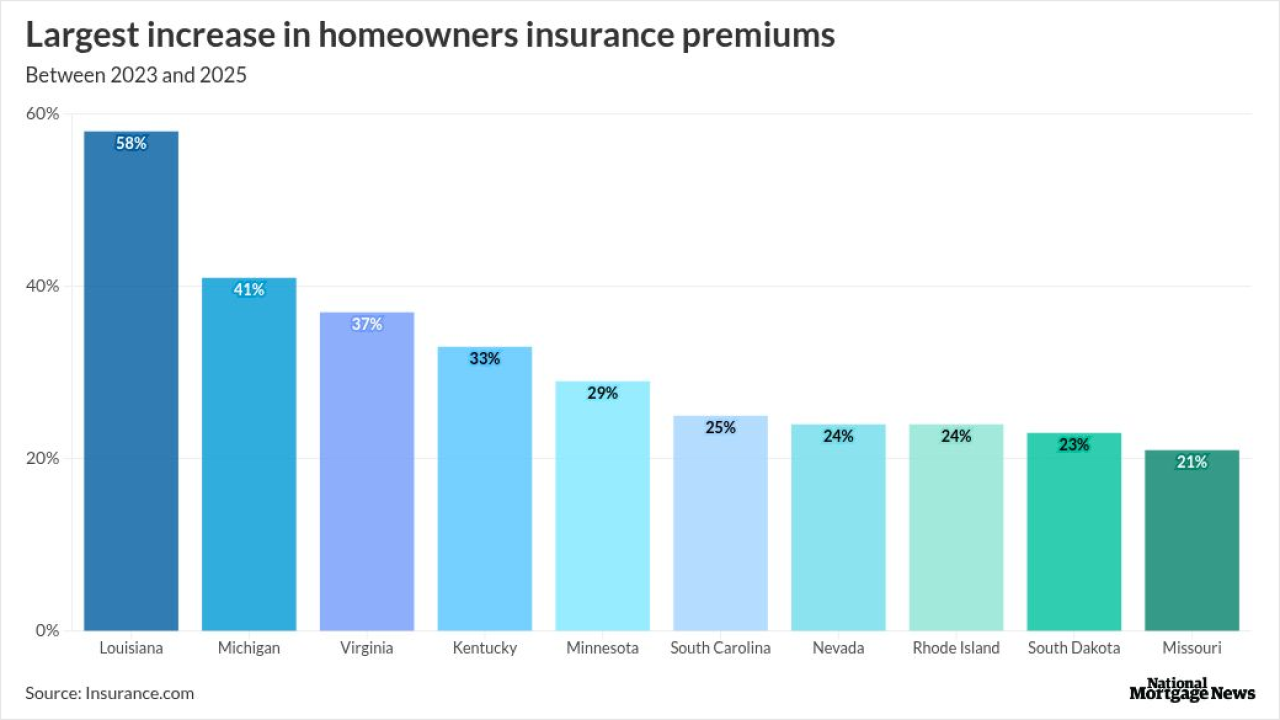Mr. Cooper on Thursday reported $439 million in second-quarter earnings, benefitting from some transitory revenue sources as it made progress toward its goal to build longer-term gains with a
The company’s earnings were down slightly from
At $654 billion, Mr. Cooper’s servicing portfolio size was up 4% from the previous quarter and 16% annually. Acquisitions of mortgage servicing rights accounted for $16 billion of the growth in the unpaid principal balance of loans, followed by mortgages acquired from other companies through the correspondent channel ($12 billion), subservicing and other sources ($10 billion), and direct-to-consumer originations ($9 billion). Runoff of MSRs reduced the net increase in the portfolio by $22 billion.

The company expects to achieve its goal of becoming a $1-trillion-servicer using channels like these within the next few years, executives said.
“It’s not a vision of the future, it’s near term,” Vice Chairman and President Chris Marshall said in an interview.
He stressed that the company would be focused on building scale in mortgage production in order to build a balanced company that would fare well regardless of whether rates fall to lenders’ advantage or rise to servicers’. Originations generated $213 million in pretax operating income during the quarter for the company.
Notable within the servicing category at Mr. Cooper was $181 million in revenues from early buyouts of loans in forbearance from securitized pools. (Some companies record EBOs as part of originations but Mr. Cooper records it as a servicing function, Marshall noted.) EBO revenues will likely still be significant next quarter, but probably about 25 or 30% lower, and they could tail off in the fourth quarter, he said.
After that, foreclosures
“It's going to be awhile until the effects of the moratorium pass, so you'll see some [Xome] come back very, very strongly as we get into 2022, but it'll take awhile for [foreclosures] to work their way through the process,” he said “Quite honestly, we're very comfortable with that. We're all about trying to help the customer and foreclosures are not a great thing, but when they do happen, they're mandated to go through auction, and that’s what the Xome platform does.”
Executives largely declined to comment when asked whether
Overall, Mr. Cooper’s results did give the company’s shares a slight lift. Its stock price at deadline Thursday afternoon was trading at nearly $37. It had opened the day a little below $36.50. Mr. Cooper’s total pretax income from continuing operations for the quarter was $227 million.




